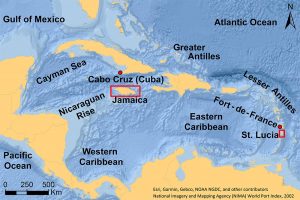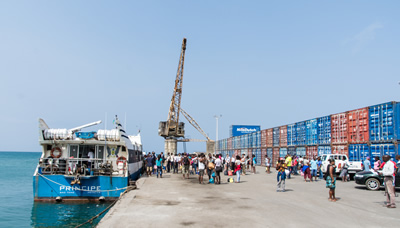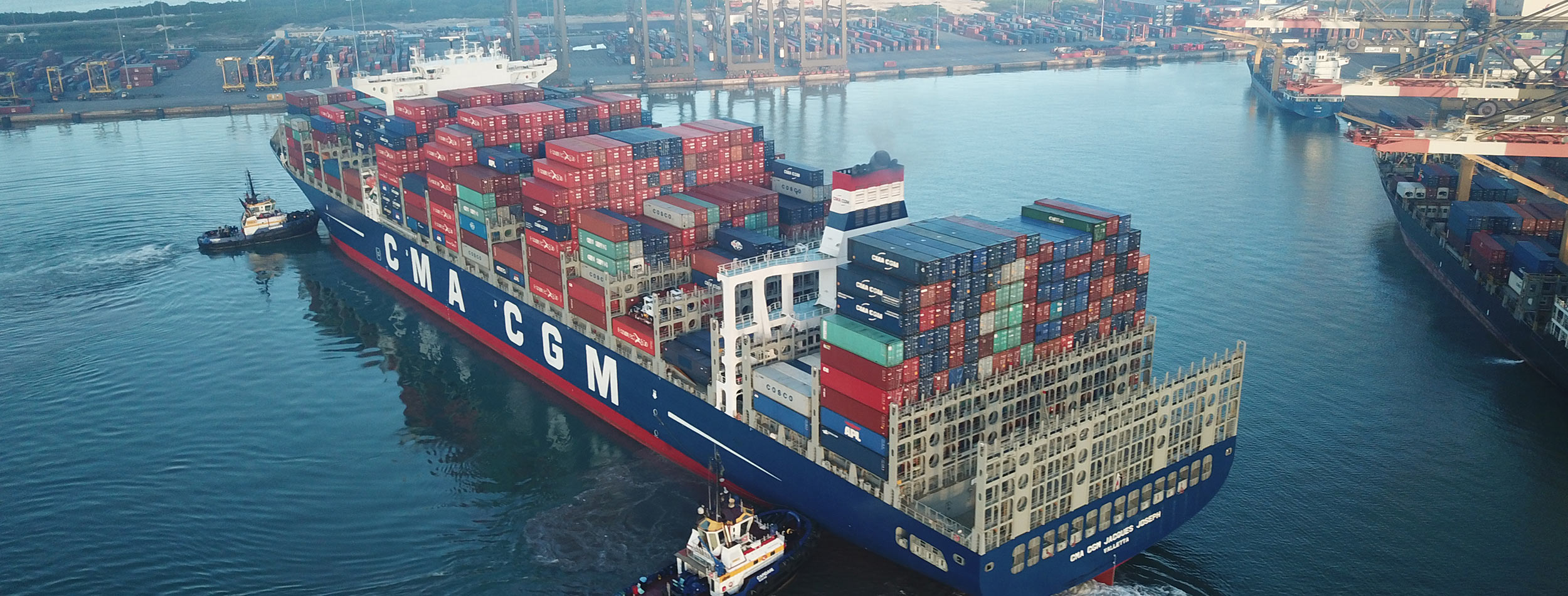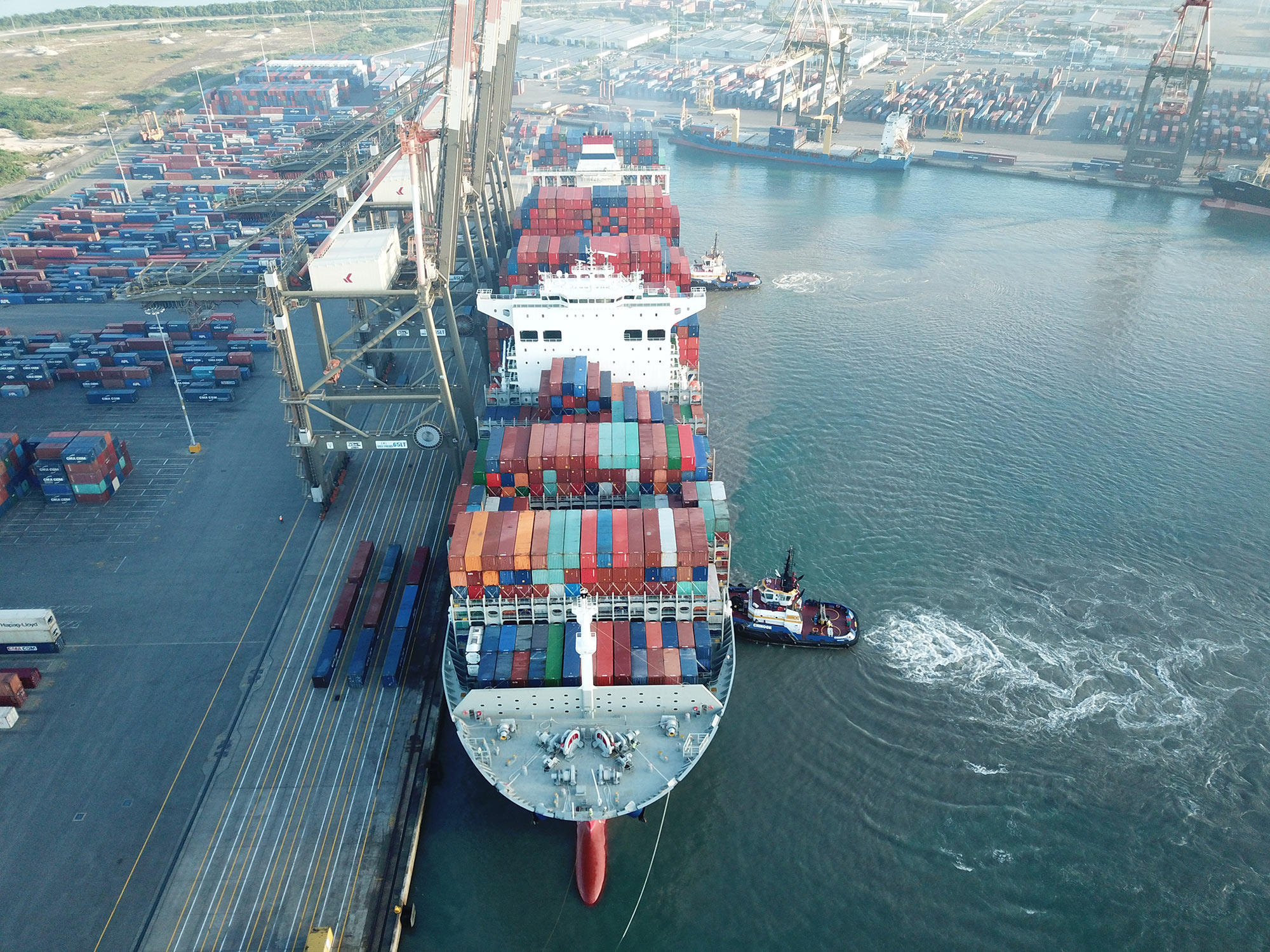Climate change impacts on coastal transport infrastructure in the Caribbean: enhancing the adaptive capacity of Small Island Developing States
Small Island Developing States (SIDS) share a number of socio-economic and environmental vulnerabilities that challenge their growth and development aspirations. Their climate, location and geomorphology, as well as their reliance on coastal transport infrastructure, in particular seaports and airports, exacerbate these vulnerabilities, including their susceptibility to climate variability and change (CV&C) factors, such as sea-level rise and extreme weather events. Furthermore, in many SIDS, international tourism, which is highly dependent on secure and reliable international transport connections, is a major economic activity and a key purveyor of revenues, jobs and foreign exchange earnings. At the same time, however, SIDS capacity to adapt and build the resilience of their coastal transport infrastructure is constrained. SIDS have limited capacity to conduct targeted risk – and vulnerability assessments and identify, prioritize and implement requisite adaptation options.
Against this background, and drawing on earlier related work, UNCTAD carried out a technical assistance project on “Climate change impacts on coastal transport infrastructure in the Caribbean: enhancing the adaptive capacity of SIDS” (UNDA 1415O). Main aims of the project were to strengthen the capacity of policy makers, transport planners and transport infrastructure managers in SIDS to:
- understand climate change impacts on coastal transport infrastructure, in particular seaports and airports; and
- take appropriate adaptation response measures.
 Case studies focusing on ports and airports in two vulnerable SIDS in the Caribbean – Jamaica and Saint Lucia – were carried out to enhance the knowledge and understanding at the national level and to assist in the development of a transferable methodology for assessing climate-related impacts and adaptation options for critical coastal transport infrastructure in SIDS. The case studies include an assessment of the vulnerability to marine flooding of key international transport assets in both countries, using state-of-the-art Extreme Sea Level (ESL) projections and under different climate scenarios; this includes the 1.5 C global warming scenario (included as an aspirational goal in the Paris Climate Agreement), which may be reached as early as in the 2030s. Vulnerability to some other climate factors was identified using an ‘operational thresholds method’ developed as part of the methodology.
Case studies focusing on ports and airports in two vulnerable SIDS in the Caribbean – Jamaica and Saint Lucia – were carried out to enhance the knowledge and understanding at the national level and to assist in the development of a transferable methodology for assessing climate-related impacts and adaptation options for critical coastal transport infrastructure in SIDS. The case studies include an assessment of the vulnerability to marine flooding of key international transport assets in both countries, using state-of-the-art Extreme Sea Level (ESL) projections and under different climate scenarios; this includes the 1.5 C global warming scenario (included as an aspirational goal in the Paris Climate Agreement), which may be reached as early as in the 2030s. Vulnerability to some other climate factors was identified using an ‘operational thresholds method’ developed as part of the methodology.
A methodology was developed to assist transport infrastructure managers and other relevant entities in SIDS in assessing climate-related impacts and adaptation options in relation to coastal transport infrastructure (‘Climate Risk and Vulnerability Assessment Framework for Caribbean Costal Transport Infrastructure’). The methodology provides a structured framework for the assessment of climate-related impacts with a view to identifying priorities for adaptation and effective adaptation planning for critical coastal transport infrastructure; a technical aspect of the methodology involves the assessment of operational disruptions due to changing climatic factors. The methodology is transferable, subject to location specific modification, for use in other SIDS within the Caribbean and beyond.
The draft case studies and methodology were reviewed and refined at a technical Expert Group meeting held in Geneva, in June 2016, and were presented and discussed at two national capacity-building workshops held in Saint Lucia (24-26 May 2017, Rodney Bay) and in Jamaica (30 May – 01 June 2017, Kingston). The workshops also provided an important opportunity for training and demonstration, as well as for feedback by a wide range of national stakeholders, with a view to finalizing the case studies. A follow up technical meeting with key stakeholders from St. Lucia and Jamaica was convened, back-to-back with the regional workshop in Barbados, in December 2017, to take stock of progress, identify obstacles and lessons learned as well as consider further technical assistance needs.
To ensure significant multiplier effects, a regional capacity-building workshop on ‘Climate Change Impacts and Adaptation for Caribbean Coastal Transport Infrastructure’ was held in Barbados (5-7 December 2017, Bridgetown), bringing together seaports and airports authorities as well as a range of other stakeholders, experts, development partners, and organizations from the wider Caribbean region (21 countries and territories). The regional workshop provided an opportunity to present and discuss the findings of the national case studies for Jamaica and Saint Lucia, and to provide demonstrations and training on the methodology developed under the project. In the light of the impacts of the devastating hurricane season of 2017, the regional workshop also served as an important topical forum for exchange and discussion of collaborative action amongst stakeholders in the region. Regional workshop participants, along with participating international organizations, experts and academics expressed the need for continued work in the area and identified several specific areas for follow-up.
Further information about key case study findings and approach as well as an overview of the methodology are provided under Key results.
A research paper, presenting some of the key project results as well as technical elements of the methodology developed under the project, has been published in the international journal Regional Environmental Change and is available online.
Weather-ready, climate-smart – a Q&A with Crispin D’Auvergne
This year’s World Meteorological Day on 23 March 2018 highlights the importance of being “weather-ready, climate-smart” – a timely theme with hurricane season right around the corner. To find out more, read the UNCTAD interview with one of the project collaborators, Crispin D’Auvergne, who works on climate change and disaster risk management for the Organization of Eastern Caribbean States (OECS), comprising 10 island nations.




